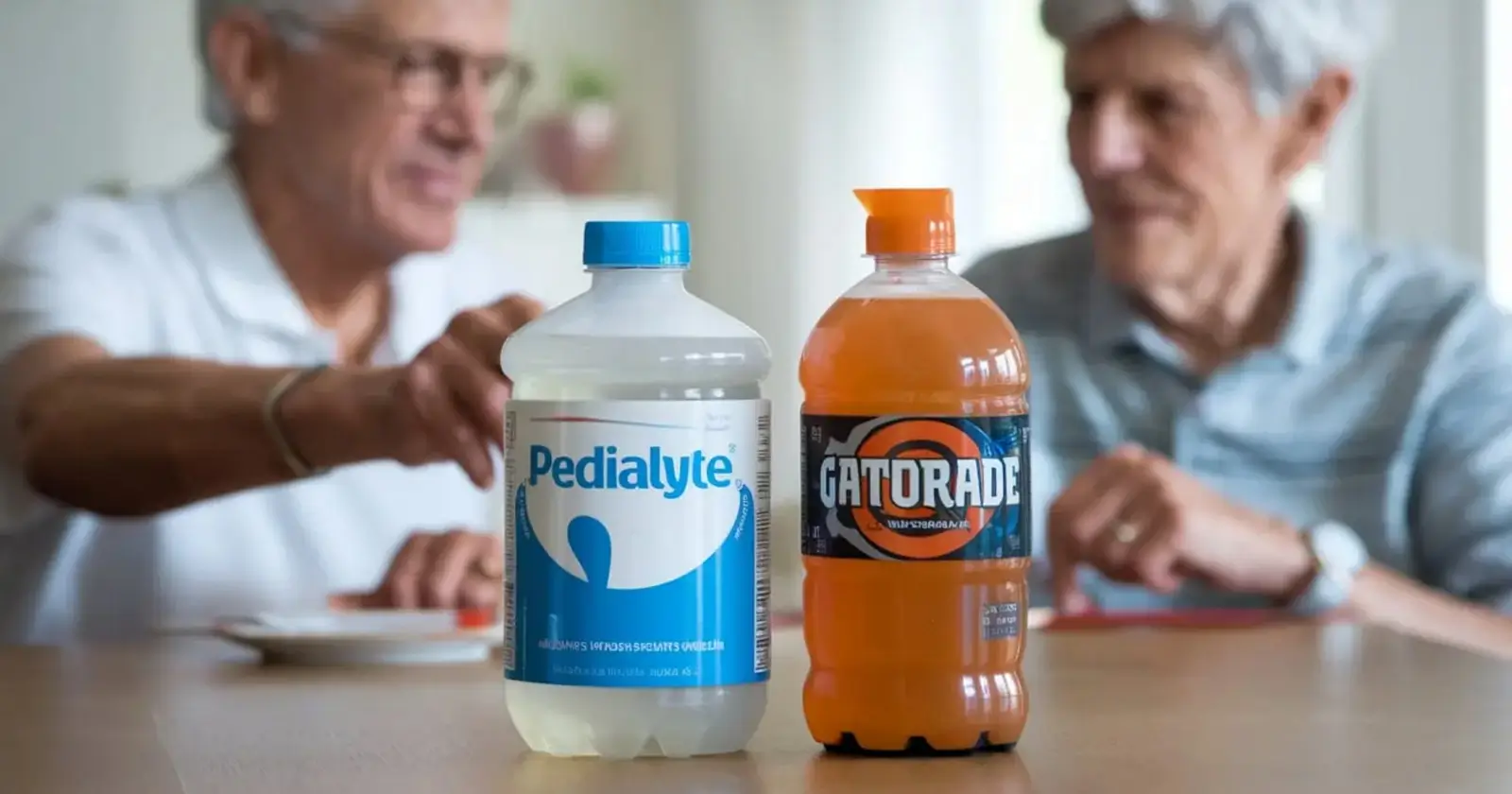Maintaining proper hydration is one of the simplest yet crucial actions to ensure your body’s well-being. This is because water and other liquids are vital for the basic functions of your body. Adequate hydration is essential for various key processes, such as regulating body temperature and facilitating waste removal (via Healthline). Conversely, insufficient fluid intake can result in dehydration.
When dehydration occurs, your body loses both water and electrolytes, negatively affecting your consciousness and athletic performance. However, water is not the only solution to prevent dehydration. Rehydration beverages like Pedialyte and Gatorade can also be effective. These drinks help treat and prevent dehydration by supplying fluids and replenishing electrolytes depleted through sweat, breath, urine, or feces (via Healthline). But what distinguishes these two drinks, and which is more suitable for you?
Nutritional comparison of Pedialyte and Gatorade
Pedialyte and Gatorade both contain water, sugar, and electrolytes like potassium and sodium, aimed at replenishing your body’s lost fluids. A primary distinction between these rehydration drinks is their nutritional content. As noted by Greatist, Pedialyte has lower sugar and calories with a higher concentration of sodium and potassium, whereas Gatorade contains more calories and sugar but fewer electrolytes.
For example, a 12-ounce serving of Pedialyte has 35 calories, 9 grams of sugar, 370 milligrams of sodium, and 280 milligrams of potassium. Some Pedialyte variants also include 2.8 milligrams of zinc and 440 milligrams of chloride. Conversely, a serving of Gatorade has 120 calories, 29 grams of sugar, 230 milligrams of sodium, and 60 milligrams of potassium. For those mindful of sugar intake, both drinks offer sugar-free options.
Who are the target markets for Pedialyte and Gatorade?
Although Pedialyte and Gatorade are often used interchangeably, they are crafted to hydrate different demographics under varying circumstances. They are marketed to distinct audiences due to their nutritional and electrolyte differences. As reported by Epicurious, Pedialyte is geared towards rehydrating people of all ages, including toddlers and children, by restoring electrolyte balance, while Gatorade is targeted towards adult athletes and frequent gym users.
Gatorade’s higher sugar content helps your body absorb electrolytes more swiftly and effectively (via Epicurious). However, non-athletes can still consume Gatorade, as both drinks adequately hydrate the body. It’s simply that each beverage is tailored for specific individuals and situations.
Symptoms and causes of dehydration
According to Self, dehydration results from inadequate water intake and excessive water loss, which can be caused by fever, excessive sweating, frequent urination, vomiting, or diarrhea. Losing substantial water and electrolytes without replenishment can cause a spectrum of unpleasant and potentially dangerous symptoms. Common signs include headache, fatigue, dizziness, confusion, dark urine, dry mouth and skin, bad breath, and lack of sweating. In some cases, sudden food cravings and hunger pangs may occur.
Many dehydration cases can be addressed with water and electrolyte drinks, but urgent medical attention is needed if you faint, feel faint, or cannot produce sweat. For such instances, calling 911 or visiting the ER for IV fluids is recommended.
Pedialyte vs Gatorade: Which one is better?
While both Pedialyte and Gatorade are designed to rehydrate, they are most effective in specific scenarios. Pedialyte is ideal for recovery from illness and hangovers (via Verywell Health). This is due to its lower sugar content, which can exacerbate gastrointestinal symptoms like diarrhea. The zinc in Pedialyte also alleviates hangovers and illness symptoms, such as headaches and vomiting.
Gatorade, however, is more suited for recovery post-sports activities and athletic training, largely due to its carbohydrate content that boosts endurance and reduces the risk of muscle cramps, as per Verywell Health. Gatorade may also be preferable for prolonged hydration, as its sugar, sodium, and calorie combination can slow digestion, reducing urination frequency.




